Change in the Pockets – Passion Fruit in Kenya
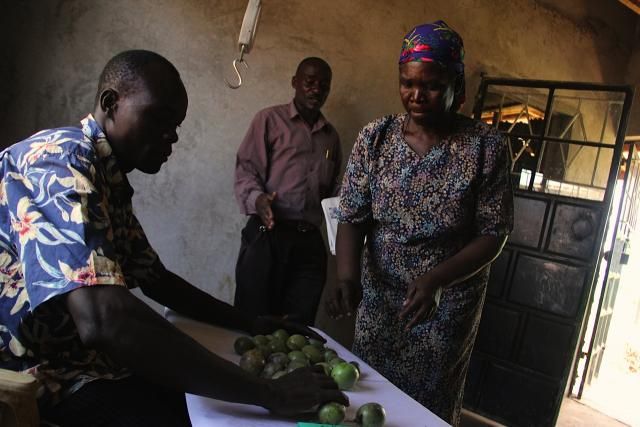
By Sara Delaney
——————————–
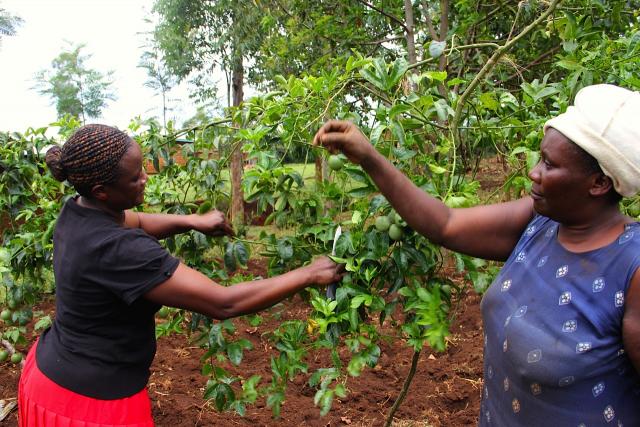 I’ve wondered before if passion fruit really deserved such an emotion-filled name, but after visiting farmers in Nyanza, Kenya, and seeing their passion for growing it, I will always believe it should be called passion fruit.
I’ve wondered before if passion fruit really deserved such an emotion-filled name, but after visiting farmers in Nyanza, Kenya, and seeing their passion for growing it, I will always believe it should be called passion fruit.
A few years ago, our local partner in Kenya, Anglican Development Services-Nyanza (ADS), started working with communities who wanted to address malnutrition in children and alleviate the child malnutrition they were struggling with.
They had the idea of trying to switch from growing tobacco, the cash-crop they had traditionally depended, which had become less and less profitable, to growing a healthy fruit.
ADS suggested passion fruit, which is not only good to eat, but can be sold for high prices on the export market and is in demand throughout Kenya. The program began a system to train farmers on this new crop on how to plant, prune, maintain, and handle this new crop.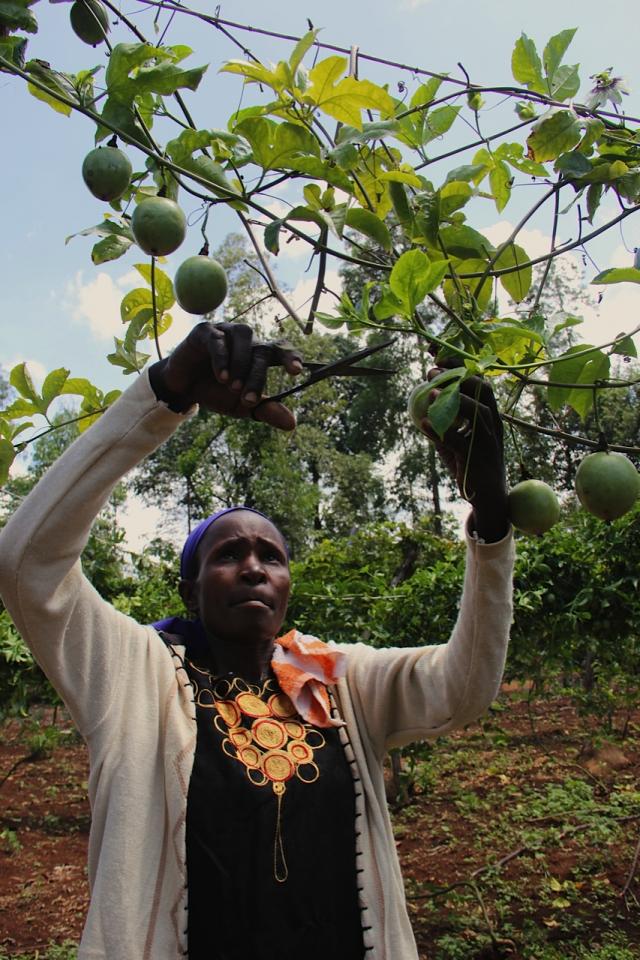
When we visited in March, we met with farmer after farmer who had started growing this fruit – which climbs in vines up trellises built in each garden – and each would tell us proudly how they pruned the branches to get a good harvest, how they watched for and controlled pests, and how they worked together with their neighbors to share what they were learning.
We talked to young men, older women, and people who had been farming tobacco for years, and they all told us that they were so happy to be growing this new crop – and they all planned to expand. They liked not being at the mercy of the tobacco companies, and they loved being able to do something new to make money for their families.
The people there had also come together to form a cooperative, called the Manywa Fruit Growing Group. Through this group they started a very impressive tree nursery, once they realized that they had to travel quite far to get passion fruit seedlings, and even then they weren’t always good quality.
They now have a beautiful plastic-enclosed space in which they grow not just passion fruit, but also avocados, mangoes, papaya, citrus, and forest trees. They have trained local people to be nursery managers and operators, and now even have a specialized team of grafters. These skilled workers are able to combine local tree stock that is disease-resistant and drought-tolerant, with foreign varieties that are higher-yielding, to create strong trees to meet the high demand in the region.
The fruit growing group has come together with ADS to build a Fruit Collection Center where group members can bring their produce at designated times to be sorted, graded, aggregated and stored in a cold room. They have been able to train managers to separate the fruit into three grades based on size, color and ripeness so that they can give the top-grade to the export buyer and sell the rest locally. Members now earn the best rates for their produce.
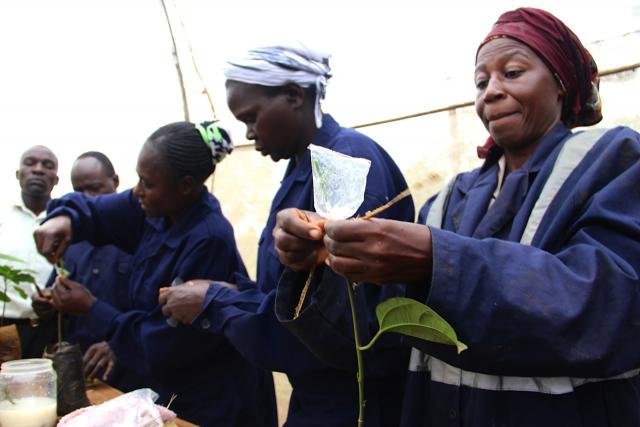
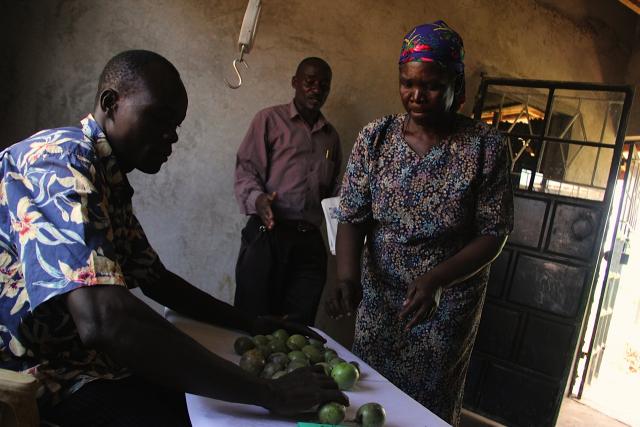
Your support to the Hunger Fund helps programs like these thrive and flourish.
——————————————–
Sara Delaney is a Program Officer with Episcopal Relief & Development.
Images: Top and Middle, Women pruning passion fruit trees. Bottom left, Local workers grafting tree stock. Bottom right, Sorting and grading the fruit.
Photo Credit: Mike Smith for Episcopal Relief & Development.


